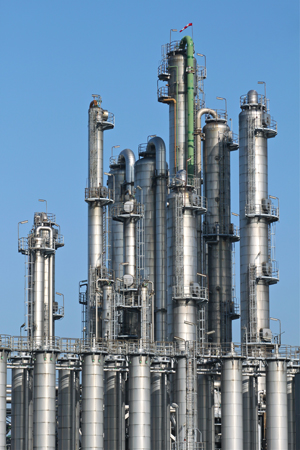 Emission inventories and process analyses are applicable to a
number of air regulations from permitting applications to
compliance audits, worker health and safety issues, the
demonstration of compliance with ambient air quality standards and
permit requirements as well as other specialized requirements.
RTP’s vast experience with pollution source processes and
air regulations coupled with our varied project experience
provides clients the assistance required to meet all regulatory
demands for each specific project. Emission inventories and process analyses are applicable to a
number of air regulations from permitting applications to
compliance audits, worker health and safety issues, the
demonstration of compliance with ambient air quality standards and
permit requirements as well as other specialized requirements.
RTP’s vast experience with pollution source processes and
air regulations coupled with our varied project experience
provides clients the assistance required to meet all regulatory
demands for each specific project.
RTP staff include individuals with manufacturing experience,
including Chemical Engineers, who can use engineering calculations
to estimate air quality emissions from batch and continuous
processes, taking into account filling emissions as well as
emissions from mixing, heating and from other process steps.
These calculations are important aspects of permit applications
and emission statements. This experience is also invaluable
for estimating the emissions from pharmaceutical and specialty
chemical plants.
RTP’s
expertise in source sampling and Continuous Emission Monitoring
systems (CEMS) has been
acquired through both research projects and field
experience. This experience also affords us with a detailed understanding of facility
operations to specifically define regulatory requirements.
RTP
conducts and manages source sampling for a variety of source
categories, including
particulate emissions at steel mills, foundries, auto parts
manufacturers, asphalt batch plants, power plants, portland cement plants and incinerators,
as well as particle sizing with Anderson cascade impactors, Brinks particle
sizers, Lundgren impactors
and microscopy. RTP also regularly collects data on oxides of nitrogen and carbon monoxide compliance testing at
cogeneration facilities, power plants and ammonium nitrate
plants;
sulfur dioxide and sulfuric acid mist;
total hydrocarbon measurements, for
example, at
car manufacturers, chemical facilities, electronic component
plants, and large printing operations;
fluorides, using EPA Method 13 for smelters, glass
manufacturers and electroplating plants;
jet engine particulate characterization for FAA; and
asbestos monitoring for private industries as well as municipal
buildings.
Because of the variety of experience in almost all industrial,
commercial or private enterprises, RTP can provide an assessment
of your specific needs from both regulatory and operational
perspectives.
|